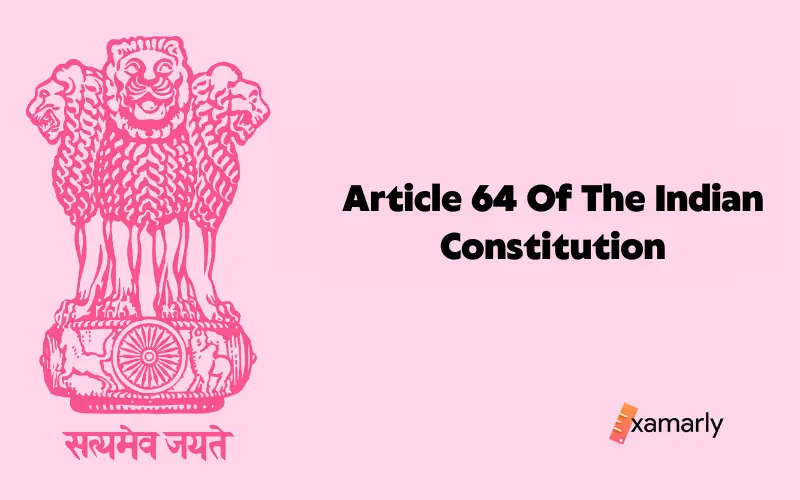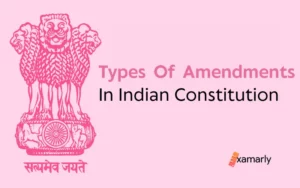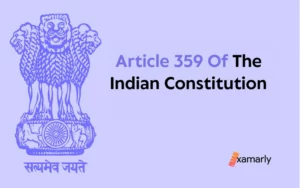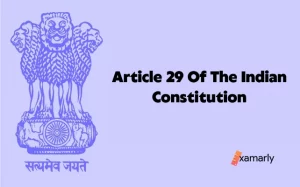Introduction
Today you and I will reflect on Article 64 of the Indian constitution which is one of the many essential articles in the Indian constitution that talks about the Vice President.
The post of the Vice-President is inspired by the position of the American Vice President. It now indeed has become a prominent part of the parliamentary form of democracy. The Vice President of India holds a number of prominent positions in the country and is regarded as the second-highest official in the country succeeding the President. Various articles in the Constitution of India are dedicated to the Vice President of India.
Article 64 Of The Indian Constitution – An Overview
Article 64 of the Indian constitution is stated as “64. The Vice President to be ex officio Chairman of the Council of States The Vice President shall be ex officio chairman of the council of States and shall not hold any other office of profit: Provided that during any period when the Vice President acts as President or discharges the functions of the President under Article 65, he shall not perform the duties of the office of chairman of the council of States and shall not be entitled to any salary or allowance payable to the chairman of the council of States under Article 97”.
What do you think we grasp from this? That there are some constraints to the functioning of the Vice President.
With the second-highest authority in India, why does the vice president have to function with so many restrictions?
We will find out in the further paragraphs and explore more about Article 64 of the Indian constitution.
Article 64 Of The Indian Constitution – In Detail
As we quoted article 64 from the constitution a moment ago, we see that the duties of the Vice President have been defined properly along with the constraints and conditions. Let us talk about it. So, the Vice-President shall also be the ex-officio chairman of the council of states, i.e, the Rajya Sabha, and will not be holding any other office of profit. The office of profit simply means the position that can bring any kind of benefit.
We see that the Vice-President of India has also been given the designated right to be the chairperson of the Rajya Sabha. As a matter of fact, it is interesting to know that he does not receive the salary for his office as the Vice-President but he receives all the monetary benefits on the grounds of managing his position as the ex-officio Chairman of Rajya Sabha.
As it has already been mentioned in other important Articles in the constitution that if a situation where the President is not able to function and the seat for the same is vacant, then the Vice-President will act as the President of the country for a maximum of six months. Six months is the maximum time for the new President to be elected.
So, in the same context, Article 64 of the Indian constitution also says that whenever the Vice-President is acting as the President of the country, he shall not perform the duties that he has as the chairman of the council of the states. He shall also not be paid any allowance or salary as a chairman of the council of states.
Related Article – Article 63 Of The Indian Constitution
Summing Up
What we conclude from this article is that our constitution binds people with constraints along with the power to keep a check and balance of every aspect of their functioning. This check and balance are indeed very necessary to run such a complex democracy in the world. So be it, anyone, in the country and no matter how prestigious their designation and position in the country is, has to comply with the protocols our constitution has set for everyone.
Common FAQs
What is an ex officio chairman?
Many Boards of Directors have what are called “ex officio” members. The term itself comes from the Latin, meaning “from the office.” It refers to a Board member who has their position because of the office that person holds.
Is Vice-President the speaker of Rajya Sabha?
Yes, in some way or the other, the Vice-President holds that position equivalent to that of the position of the Speaker in the Legislative Assembly. So we can say that the Vice-President is the speaker of the Rajya Sabha.






